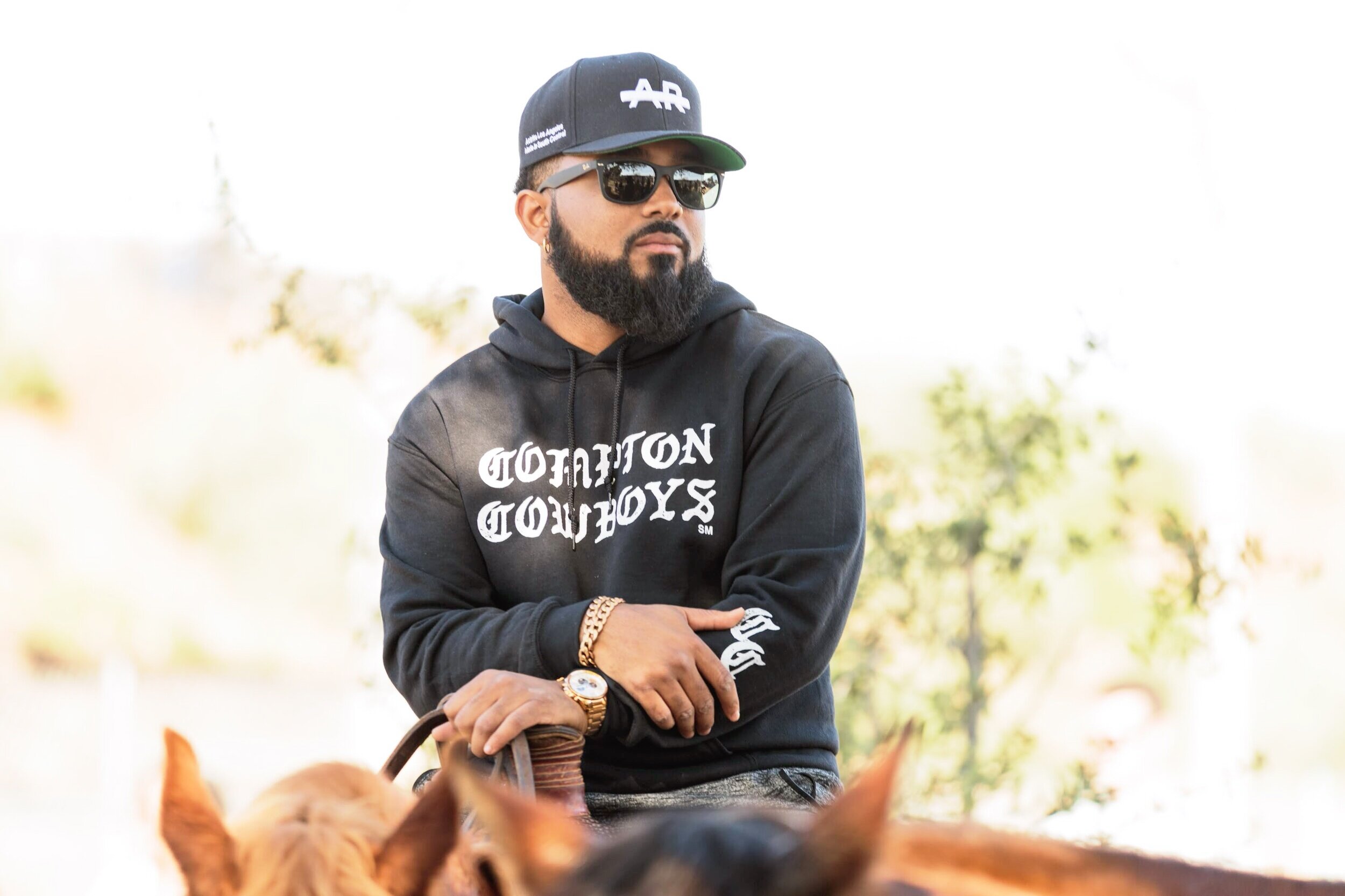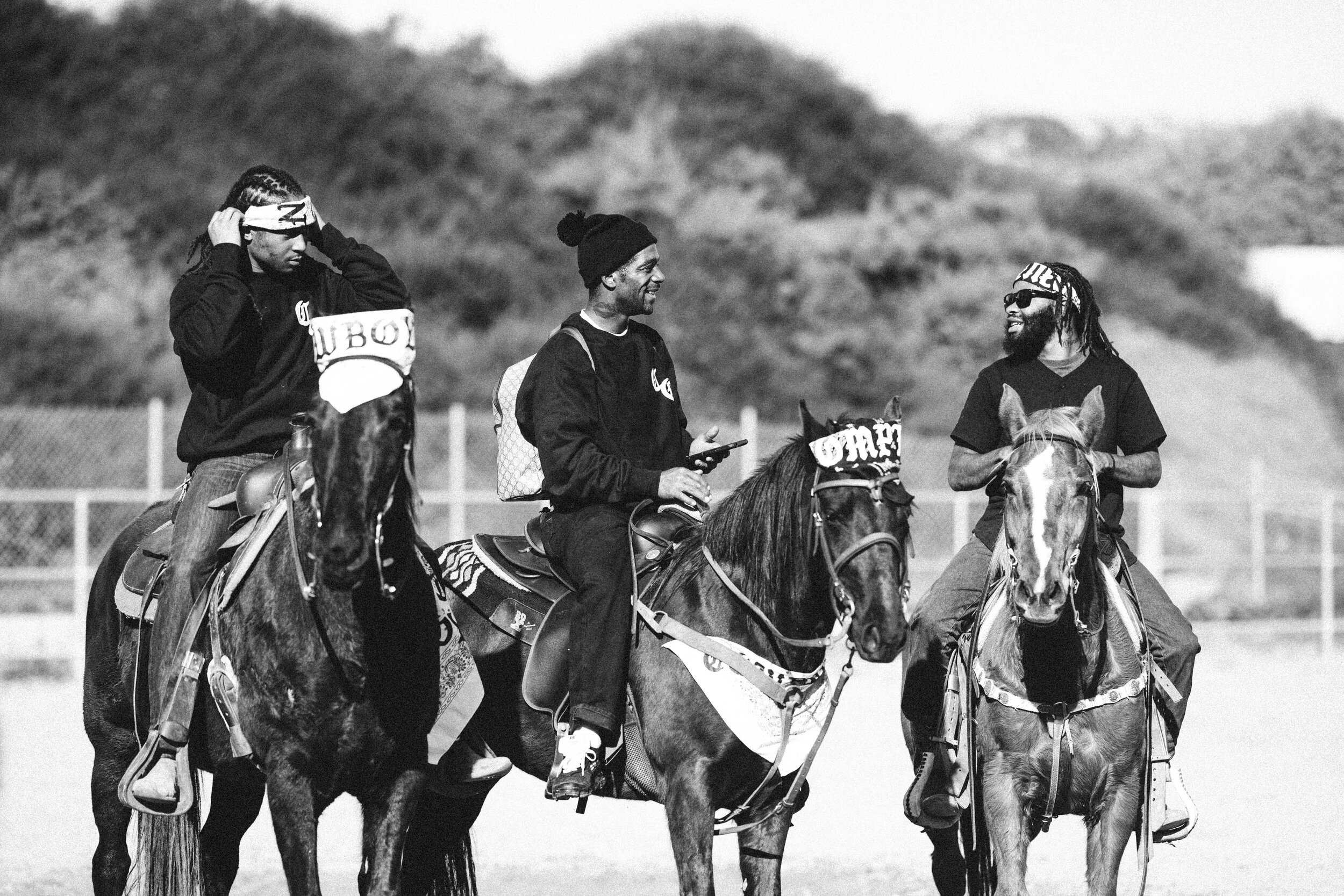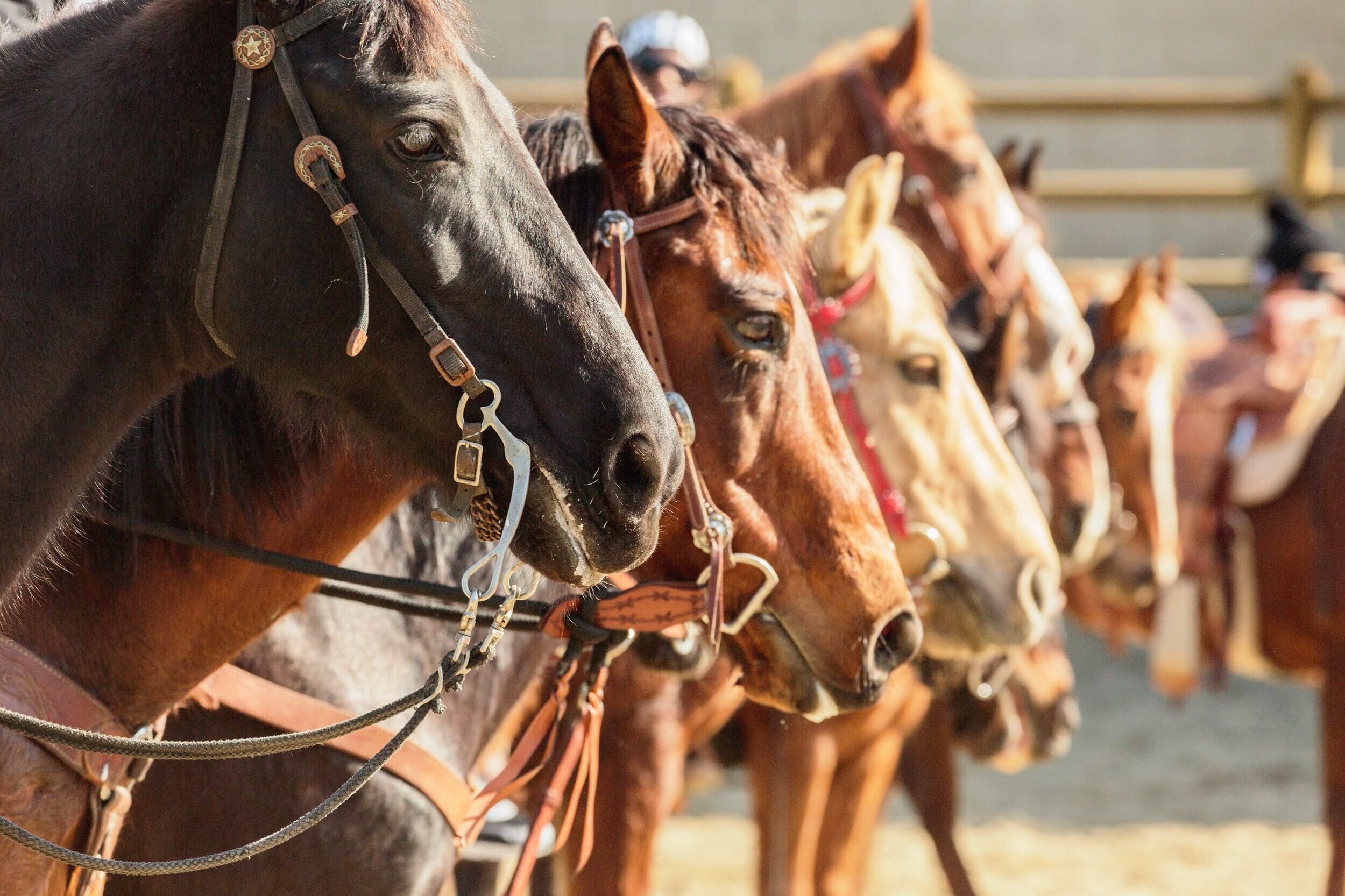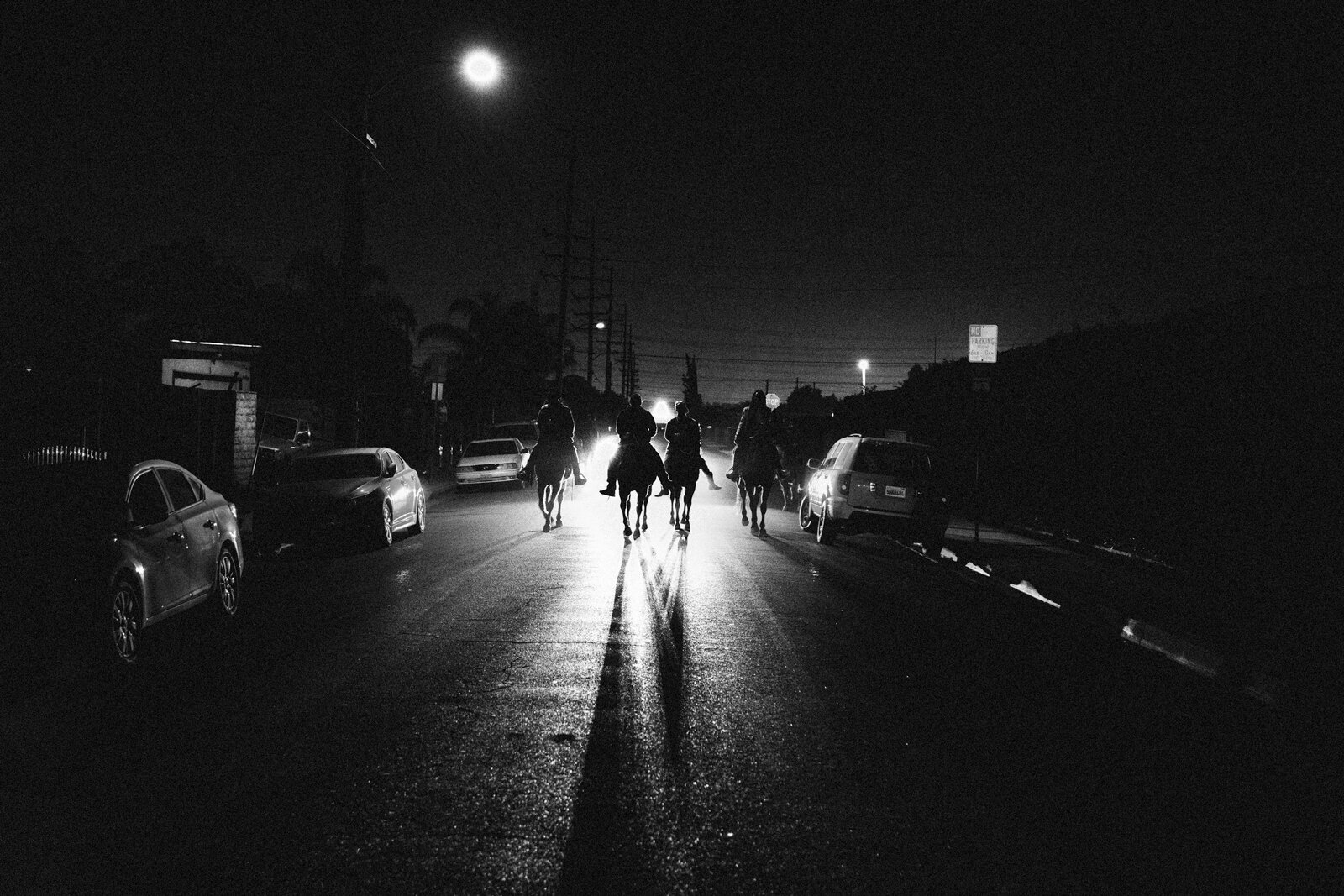
A community-centric equestrian outfit saddles up to support local youth.
Written by Constance Dunn
“I know at least four people that have died on my street,” says Randy Hook. “That’s just on this one little block.” At just 30 years old, Hook is ushering in a new and energized wave of the Compton Cowboys, a crew of childhood friends who run an innovative youth community horse ranch located in Richland Farms, a tucked-away agricultural hub in the City of Compton. He’s armed with a keen marketing mind and wisdom—the type gleaned from years of personal experience and fortified by formal, studied knowledge, including a sociology degree Hook undertook, he says, “So I could further my understanding of how people and places and things work in the grand scheme.”
With the Compton Cowboys, Hook is continuing a family legacy of leaving things better than how they found them and making positive and lasting changes in the community—personally, and with boots on the ground. His grandmother, for instance, was a cook at a local school who, Hook says, “would also cook for the entire neighborhood.” His father was another change-maker who, after getting a Harvard MBA, moved back to Compton. “His life’s mission,” explains Hook, “was and is to effect change in the black community and the inner city community, starting with young black men.” Then there’s his aunt, businesswoman Mayisha Akbar who in 1988 created a riding club for local youth at her home-turned-horse ranch. She named it the Compton Junior Posse and her mission was bold: Keeping kids on horses and off the streets. The goal was to provide a positive place for kids to be kids—to learn horsemanship, riding and to forge that unique, soul-strengthening relationship that’s existed for centuries between man and beast.

“I watch some kids and see how they struggle. I also watch how they change: The horses have such a positive effect on kids at that age.”
— Randy Hook

It’s worked. “I watch some kids and see how they struggle,” explains Hook. “I also watch how they change: The horses have such a positive effect on kids at that age.” When his aunt retired in 2018, Hook personally took up the reins of the cause and has engaged current-day marketing strategies to expand the ranch’s reach—and its power as an oppositional force to the well-calculated enlistment of local youth into gangs. “When you get on your own two feet on the pavement,” Hook describes, “that’s when the streets start trying to grab you.”

In addition to the ranch there’s a new book, “The Compton Cowboys: The New Generation of Cowboys in America’s Urban Heartland” (William Morrow), and a movie in the works with Searchlight Pictures. There’s a strong social media presence, notably on Instagram, and merchandise. Not least of all is the head-turning presence of the Cowboys themselves. “To get kids moving in one direction or the other,” Hook points out, “whatever you’re doing has got to be cool.” The sight of young local men—tattooed, edgy and no-nonsense—strolling down city blocks on horseback, fits the bill. “Once we get their attention,” says Hook, “we inundate them with positive messaging.”
The American cowboy exists globally as an icon of individualism, self-sufficiency and steadfastly going one’s own way. (And historians estimate that during the late-1800’s heyday of the American cowboy, approximately 25 percent of American cowboys were black.) The name Compton Cowboys, then, is an apt one, with Hook and the group working each day to reset these streets for its youngest pioneers, and with it instill in them permanent virtues like leadership and working with others; connecting with animals and one’s environment. For a kid, the transformative power of being able to successfully put a 1,200-pound animal under one’s control is not to be underestimated.
“The way we’re going to fix our community is to get to the kids early—before the streets do,” explains Hook. “You see a kid who comes in and trains hard, and their parent calls you and says, ‘Thank God for the ranch and for you guys, because I don’t know what my son would be doing.’ That’s the most rewarding thing about all of this. To be able to change lives, and to save lives.”
“The way we’re going to fix our community is to get to the kids early—before the streets do. … That’s the most rewarding thing about all of this. To be able to change lives, and to save lives.”
— Randy Hook

Photograph courtesy of @qdn_photography, Ryan Edward Photography (except where noted)


